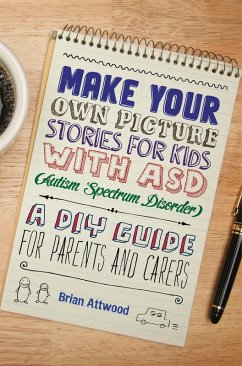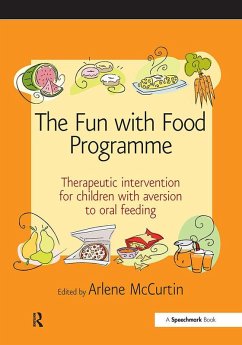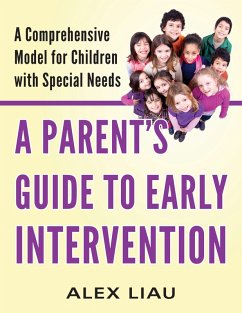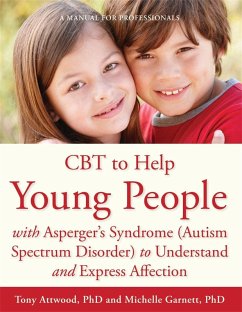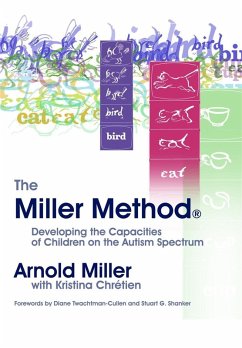
Talk to Me (eBook, ePUB)
Conversation Strategies for Parents of Children on the Autism Spectrum or with Speech and Language Impairments
Versandkostenfrei!
Sofort per Download lieferbar
15,95 €
inkl. MwSt.
Weitere Ausgaben:

PAYBACK Punkte
8 °P sammeln!
If your child finds talking to people a struggle, this is the book to get the conversation started.In this hands-on guide, Heather Jones offers practical advice, born of experience with her own son, which will help you teach your child the principles of communication. Full of strategies and examples, it shows how you can allay fears, build confidence and teach your child to enjoy conversation. Once a child gets used to talking with other people, many life skills can develop more easily as they grow up - from making friends and shopping for themselves, to being interviewed and eventually gettin...
If your child finds talking to people a struggle, this is the book to get the conversation started.
In this hands-on guide, Heather Jones offers practical advice, born of experience with her own son, which will help you teach your child the principles of communication. Full of strategies and examples, it shows how you can allay fears, build confidence and teach your child to enjoy conversation. Once a child gets used to talking with other people, many life skills can develop more easily as they grow up - from making friends and shopping for themselves, to being interviewed and eventually getting a job.
This handy book provides guidance and inspiration to parents, teachers and anyone else who cares for a child who finds language and comprehension difficult.
In this hands-on guide, Heather Jones offers practical advice, born of experience with her own son, which will help you teach your child the principles of communication. Full of strategies and examples, it shows how you can allay fears, build confidence and teach your child to enjoy conversation. Once a child gets used to talking with other people, many life skills can develop more easily as they grow up - from making friends and shopping for themselves, to being interviewed and eventually getting a job.
This handy book provides guidance and inspiration to parents, teachers and anyone else who cares for a child who finds language and comprehension difficult.
Dieser Download kann aus rechtlichen Gründen nur mit Rechnungsadresse in A, D ausgeliefert werden.







